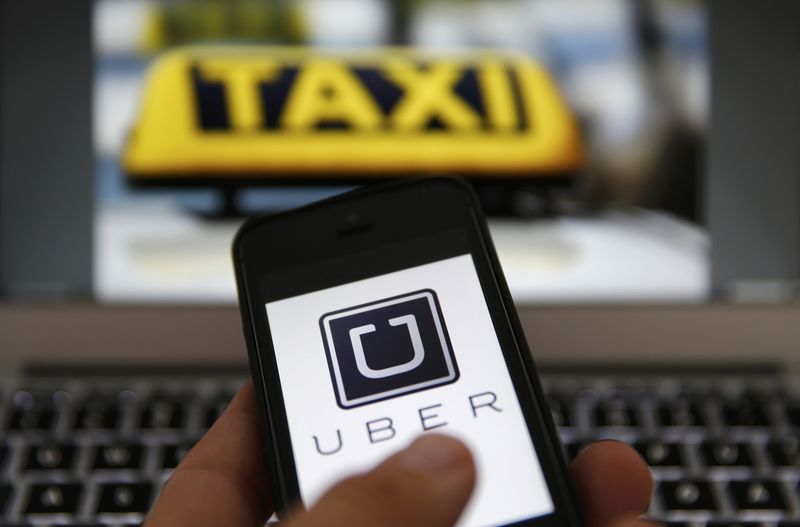By Eric Auchard and Christoph Steitz
FRANKFURT (Reuters) - A German court on Wednesday banned Uber from running services using unlicensed cab drivers and set stiff fines for any violations of local transport laws by the pioneering online taxi firm.
Uber, worth an estimated $40 billion making it the world's most valuable venture-backed start-up, has set out to revolutionise local transport services worldwide, from taxis to carpools to fast-food delivery.
Born out of the frustration of two Silicon Valley entreprenuers trying to catch a cab in Paris, Uber's popular mobile phone taxi-hailing services have mushroomed since being launched in 2010 and are offered in nearly 270 cities worldwide.
But Uber also has become a magnet for criticism of its business style of moving first and asking permission later. It has faced complaints around the world over how it pays drivers, charges passengers and ensures their safety.
The latest case, brought in the Frankfurt regional court by German taxi operator group Taxi Deutschland against UberPOP, is one of more than a dozen lawsuits filed in countries across Europe in recent months against the San Francisco-based company.
Dieter Schlenker, chairman of the Taxi Deutschland cooperative, said the ruling would protect taxi drivers from competition from unlicensed part-time drivers used by Uber. His taxi group is part of an association dating back to 1919.
UberPOP, an online service that links private drivers with passengers via their mobile phones, is the target of most suits.
"What does is mean for the 255,000 taxi drivers and employees in 700 radio taxi control centres? It means legal certainty, 255,000 real jobs and taxpayers will remain in Germany," Schlenker said following the ruling.
PROTESTS AND RAIDS
Each violation of the German court order covering violations of local passenger transport licensing laws by Uber and its uberPOP online service was subject to a 250,000 euro ($264,825) fine, a three-judge panel of the Frankfurt regional court ruled.
Uber will continue to operate services in Germany using licensed limousine and taxi drivers. It also said it was working on a new service designed to comply with the German court's interpretations of existing laws.
To date, Uber has been hit by court injunctions in Belgium, France, Germany, the Netherlands and Spain. Taxi driver protests against Uber have clogged streets in major European cities.
This week, French police raided Uber's Paris offices and confiscated 1,200 cell phones, some computers and documents as part of an investigation begun in November into the uberPOP service and questions of whether Uber illegally retained customers' personal data, a French judiciary source said.
The head of Uber France told the L'Obs magazine website he considered the raid heavy-handed and on thin legal ground.
In December, a Dutch court banned uberPOP on similar grounds that it fell foul of licensing laws for commercial drivers. Since then, a handful of uberPOP drivers have been given stiff fines for violating the ban on unlicensed drivers.
In the past week, two Amsterdam taxi drivers were arrested for reckless driving after blocking an Uber driver. Another Uber driver reported his car had been blocked and tires slashed, although no suspects have been identified, city police said.
DRIVING ON
A spokesman for Uber said the company expected to appeal the Frankfurt court's decision, but would await the full ruling.
"We will not give up on the German market: our UberBLACK and uberTAXI services remain unaffected by today's judgement," an emailed statement from the company said, refering to the services that use licensed taxi and limousine drivers.
The Frankfurt regional court's presiding judge Joachim Nickel said during a hearing ahead of the ruling that Uber violated German laws on commercial passenger transportation since its drivers did not have the right kinds of licences.
He said Uber's business model violated both national and European Union laws because it did not fully insure drivers or passengers in the event of accidents.
Attorneys representing Uber denied it was subject to rules governing taxi operators, claiming the company merely acts as an exchange connecting drivers with clients.

In response, Uwe Eilers, one judge on the three-judge panel, said: "In that case, you should include in your business description that Uber offers rides for free."